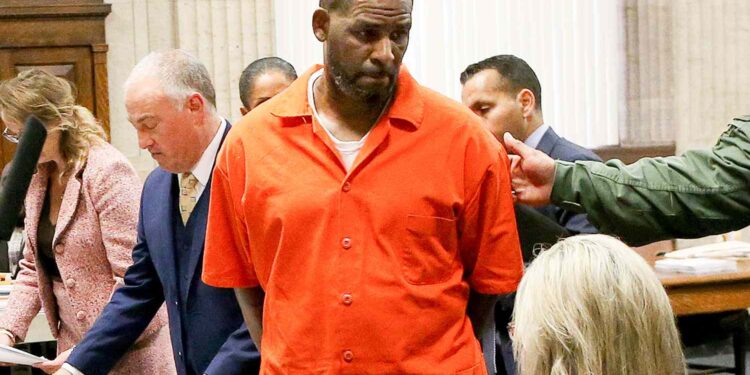On Monday, the attorney of R Kelly faced challenges persuading a U.S. appeals court to reverse the former R&B star’s sex trafficking conviction and lengthy prison term.
R Kelly, aged 57, is contesting his September 2021 sex conviction in Brooklyn, New York, where a jury found him guilty on nine charges, including racketeering and eight violations of the Mann Act, which prohibits transporting individuals across state lines for prostitution.
Jennifer Bonjean, his legal representative, argued before the 2nd U.S. Circuit Court of Appeals that federal prosecutors had not sufficiently demonstrated Kelly’s involvement in a racketeering scheme, alleging that he recruited underage girls for sexual purposes and exploited multiple victims.
Questions from the three-judge panel in Manhattan suggested that argument might be a tough sell.
“Didn’t the government prove that one of the purposes of this enterprise was to recruit girls so that Kelly could have illegal sexual activity?” Circuit Judge Denny Chin asked.
Bonjean said it did not do so by relying on evidence such as Kelly’s employees passing out the phone number backstage of the singer, perhaps best known for the 1996 Grammy-winning smash “I Believe I Can Fly.”
“There was no indication of anyone explicitly inquiring about age or knowingly seeking out underage individuals to introduce to Mr. Kelly,” remarked Circuit Judge Richard Sullivan, hinting at the possibility that the ages of certain accusers might have been discernible.
“Wouldn’t the youthful appearance of these girls suffice as evidence?” inquired Sullivan.
“Appearing youthful doesn’t necessarily equate to knowing someone is a minor,” countered Bonjean.

The panel’s interrogation of federal prosecutor Kayla Bensing was less direct, allowing her three uninterrupted minutes to recapitulate the testimony provided by some of the accusers.
Several of the 45 witnesses presented by the government testified to the imposition of oppressive conditions by Kelly and his associates, including requirements for victims to address him as “Daddy” and seek permission for basic needs such as eating or using the bathroom.
“The jury could reasonably conclude that Kelly and his inner circle were aware of the situation,” stated Bensing. “He utilized the enterprise to instill a sense of confinement in them, leaving them feeling there was no escape.”
Robert Sylvester Kelly, known as R. Kelly, stands as one of the most prominent figures convicted of sexual misconduct amidst the #MeToo movement. His conviction and sentencing come after two decades of allegations, which he consistently refuted.
Among the arguments raised in Kelly’s appeal were claims of preconceived guilt by jurors, ineffective legal representation, and the jury being overwhelmed by evidence of other alleged misconduct.
In addition to his conviction in September 2022 by a Chicago jury for child sex crimes, resulting in a 20-year prison sentence, the judge there only added one year to Kelly’s total imprisonment, with the remaining 19 years overlapping the original 30-year term.
Kelly has been incarcerated since July 2019, currently held at the Butner federal prison in North Carolina, the same facility where the late Bernard Madoff, infamous for his Ponzi scheme, was housed. Eligible for release in 2045, Kelly will be 78 years old at that time.

























